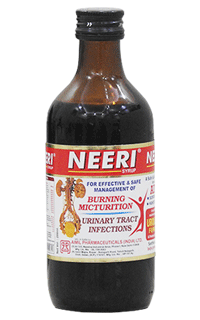“Without a doubt, antibiotics have saved millions of lives and are needed in severe and serious conditions to protect from infections; the benefits outweigh the potential harms,” said lead study author Dr. Gregory Tasian of the Children’s Hospital of Philadelphia.
We never suggest that antibiotics should not be prescribed instead they should be prescribed when needed”.
Concern:
Do support antibiotic stewardship - the judicious and appropriate use of antibiotics and reducing inappropriate use of antibiotics for a viral illness.”
Fact:
Scientists already knew that antibiotics alter the composition of the human microbiome - all of the bacteria, viruses and fungi that live in and on the body. Changes in the intestinal and urinary microbiome have also been linked to kidney stones, but no previous studies revealed an association between antibiotics and stones, researchers note in the Journal of the American Society of Nephrology.
Not all antibiotics were associated with an increased risk of kidney stones, however. Exposure three to 12 months before the index date to any of five antibiotics/ antimicrobials – Sulfas, Cephalosporins, Fluoroquinolones, Nitrofurantoin/Methenamine, and broad-spectrum penicillins – was associated with an increased risk of kidney stones.
The risk increase associated with these antibiotics ranged from 27 percent higher odds with broad-spectrum Penicillins to more than doubled odds with Sulfas. Besides, there is always a risk of development of drug resistance which troublesome the patient condition.
Risk is entrapping children and adolescents more, the study found. The risk of kidney stones decreased over time but remained elevated several years after antibiotic use.
(Journal of the American Society of Nephrology, online May 10, 2018)
Answering the need safely Neeri- Most trusted brand for more than three decades with the immense support of eminent health care professionals.
-
Inhibits oxalate metabolism preventing stone formation by inhibiting the enzymes responsible for oxalate synthesis viz. glycolate oxidase, glycolate dehydrogenase and Lactate dehydrogenase. Thus, decreases hyer-
 oxaluria by Tribulus terristris (gokhru) & Cartaeva nurvala (Varuna)
oxaluria by Tribulus terristris (gokhru) & Cartaeva nurvala (Varuna)
- Supplements stone inhibitors like Magnesium, which prevent calcium from binding with oxalate or phosphates. Neeri significantly increases excretion of citrates forming soluble complex with calcium, which ultimately decreases the concentration of urinary calcium, thus inhibits new stone formation.
- Inhibits the accumulation, deposition and super saturation of salts in urinary media thereby preventing the further formation of stones and helps in spontaneous flushing of stones by Tribulus terristris (gokhru) & Dolichos biflorus (Kultha) & Bergenia ligulata (Pashanbhed)
- Provides citrates & biomolecules for healthier & clear urine formation by Shwet parpati, Kshar and Butea monosperma (Palash)
- Acts as potent anti-oxidant & rejuvenative thereby acts as nephron-protective by Boerhaavia diffusa (Punernava)
- Reduces residual urine quantity and improves the tonicity of urinary bladder particularly in atony conditions due to surgery or ageing by Crataeva nurvala (Varuna)
Because kidneys are precious!



